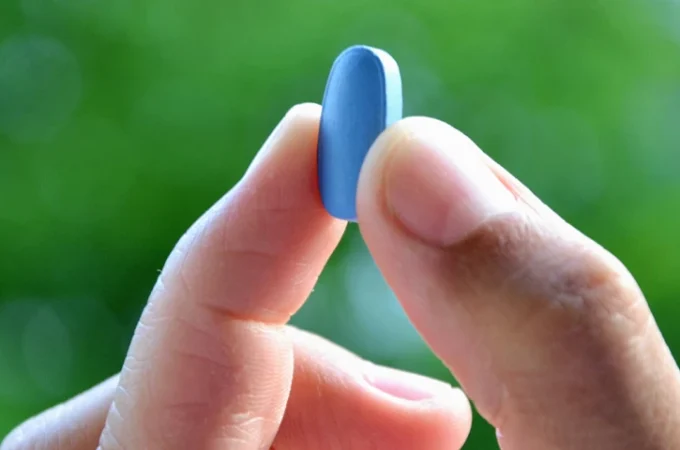
7 Research Proven Health Benefits of Using CBD
CBD is currently one of the biggest raves on the internet. It is practically everywhere you go from the stores to your gas stations; you can hardly miss it! What exactly is this CBD rave all about, and are there any research-proven health benefits of using CBD? Continue Reading below for all the answers to these questions.
What Exactly Is CBD And How Does It Work?
CBD, fully known as Cannabidiol, is one of the many active compounds found in the Cannabis Sativa family (Hemp and Marijuana). CBD accounts for about 40% of the plant’s extracts after Tetrahydrocannabinol (THC), which is the highest active compound and also responsible for causing highness in its recreational users.

Unlike THC, CBD is not psychoactive which means that it doesn’t give a high. This is because CBD is usually very low in THC, ideally below 0.3 percent.
CBD works well together with the endocannabinoid system (ECS) in the human body. For some reason, the compounds found in CBD are similar to the ones naturally in our endocannabinoid system. Consequently, the human body finds it very easy to absorb and use CBD in a beneficial way.
The ECS has two receptors: the CB1 and CB2. CB1 are majorly found in the brain, though you can also find them throughout the body. They are responsible for coordination, emotions, mood, movement, thinking, etc. CB2 receptors, on the other hand, affect inflammation, pain, and are mostly found in the immune system.
However, it is essential to note that unlike THC, CBD does not attach itself or bind to the receptors as initially thought. Instead, what CBD does is block the breakdown of our natural endocannabinoid to allow our bodies to use the one it is producing effectively.
CBD comes in different forms, such as gummies, creams, gel, tincture, capsules, concentrates, or as a CBD prefilled cartridge.
Research Proven Health Benefits of CBD

- Chronic Pain and Inflammation Relief: There is scientific evidence supporting the use of CBD to relieve chronic pain and inflammation. Also, according to a study on animals published in the Journal of Experimental, CBD helps reduce chronic pain in rodents. The researchers concluded that CBD provides a viable alternative for alleviating chronic pain.
Another research also shows that CBD may be effective against inflammation owing to its anti-inflammatory properties. Its interaction with the endocannabinoid system helps prevent or relieve inflammation systematically for a broad range of conditions such as arthritis, lower gut disease, acne, multiple sclerosis, and hepatitis.
Treat Epilepsy in Children: This is perhaps the most scientifically-proven benefit of CBD. Studies have proved that CBD can be used to treat children with drug-resistant epilepsy seizures. Epidiolex, the resulting CBD drug, has been approved by the FDA, which is the first of its kind.
Before the discovery of Epidiolex, it has been tough to treat Davet and Lennox-Gastaut epilepsy syndromes in children. However, with the help of CBD, there have been reports of improvement among children with these symptoms. Aside from this, CBD may also help treat conditions such as neuronal injury and neurodegeneration associated with epilepsy.
- Prevent and Treat Acne: CBD contains anti-inflammatory and antioxidant properties that can help in combating acne and other skin conditions such as eczema and psoriasis. A study done in 2014 notes that the use of Cannabidiol can reduce sebum production, which encourages the growth of acne.
- Treat Anxiety and Stress: Several studies have shown that CBD can help reduce anxiety and stress-related conditions such as general anxiety disorder, post-traumatic disorder (PTSD), obsessive-compulsive disorder (OCD), and social anxiety disorder. Although these studies are still at its preliminary stage, there is a possibility that CBD could eventually be a genuine alternative to treating stress and anxiety.
Furthermore, a 2011 study done on 24 patients diagnosed with social anxiety and 12 social anxiety free subjects shows that CBD can be used in reducing the effects of social anxiety.
- Treating Substance Abuse: There is scientific evidence to support the use of CBD for substance abuse. A 2015 review published in the Journal of Science reviews previous studies on the therapeutic effects of CBD on substance abusers. The results of this study suggest that CBD can modify neural paths in the brain that are associated with addiction.
A similar study discovered that smokers who used inhalers infused with CBD showed a reduction for nicotine cravings and ultimately smoked fewer cigarettes.
- Reduce the Risk of Diabetes and Treat Diabetes 1: Several types of research suggest that CBD could reduce the risk of getting diabetes and help manage the symptoms of Diabetes 1.
The results of a study on diabetes-prone mice show that only 30% of the mice injected with CBD were infected with diabetes, a considerable improvement, compared to 86% of mice that were not vaccinated and got diabetes.
A similar study on mice looks at the possibility of using CBD to treat diabetes at its early stage. The study concludes that CBD could be a potential alternative for the treatment of Diabetes 1.
The studies so far support the use of CBD to manage diabetes; however, the research at this stage is still at the initial stages. More clinical studies will be needed to validate these findings.
- Promote Heart Health: Various animal and cell studies have suggested that CBD can play a decisive role in heart health by reducing blood pressure, promoting blood flow, and reducing inflammation. From the results of such studies, some researchers think that CBD could likely prevent heart ailments such as stroke and heart attack and also manage the symptoms in patients with existing conditions.
Nonetheless, there are hardly any clinical studies in this area. Hence there is a need for more clinical studies to determine the role of CBD in preventing or managing heart conditions.
Conclusion
Science still has a lot to do before it can fully catch up to the health benefits of CBD. While research and tests are still ongoing, for now, the research-proven health benefits of CBD range from alleviating pain to treating skin conditions, reducing stress and anxiety, and treating epilepsy in children. Admittedly, there are more potential health benefits. However, there is a need for more research and controlled clinical studies to substantiate these hypothetical benefits.




